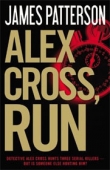
Текст книги "Paint It Black"
Автор книги: P. J. Parrish
Жанры:
Триллеры
,сообщить о нарушении
Текущая страница: 17 (всего у книги 20 страниц)
Chapter Forty-one
Louis walked into the war room and drew up short. The bulletin board was gone. The table was clear. There was one box on the table.
Wainwright came out of his bathroom, saw the look on Louis’s face, and shrugged. “I had it all carted over to Horton’s office. We’ll work out of there.”
Louis nodded, understanding but not liking it. It had been their work. The faces on that bulletin board had kept him going.
“Dan,” Louis said, “I think I can put Mayo in the shrimp shack.”
“How?”
“Blood from a king mackerel was found in the shack. It was fresh, Dan. And the only place you can catch that fish is in the gulf. I checked with a guide today. There are five boats at the wharf. Only one—the Miss Monica—goes to the Gulf of Mexico. We know Mayo worked on the Miss Monica.”
Wainwright sat down. “Not bad. But I’d rather have something concrete, like Mayo’s prints on the chair.”
“Nothing back on that yet?”
Wainwright shook his head.
Louis sighed and looked back at the empty space where the board had been. “Horton have anything for us to do?” he asked.
Wainwright shook his head again.
Louis looked down at the box on the table. “What’s in this?”
“Just some of Farentino’s personal papers and useless files. I didn’t want to toss them. She wouldn’t be too happy about that.”
“Won’t be happy about what?” a voice said from behind them.
They turned to see Emily standing in the doorway. Louis went over to her.
“Hey, Farentino. How you doing?” he said.
“Hey, Kincaid. Not bad.” Her smile faded as she noticed the blank bulletin board. “Where’s all our stuff?” she asked.
“Everything’s downtown,” Wainwright said.
Emily looked at them. “Then why are we here?”
Louis slid his hip on a desk. “We’re on standby.”
“You mean we’re out of it,” Emily said.
Neither answered her.
“Louis has a theory,” Wainwright said.
Louis told her about the shrimp shack connection to Mayo. Emily looked unimpressed.
“What?” Louis asked.
“Fresh blood?” she asked. “Louis, Mayo hasn’t been on a boat in almost a month. We know that. We have every boat under surveillance.”
Louis paused, then turned away. “Fuck!” he said. He kicked a chair. It rolled and crashed into the wall. Wainwright and Emily just stared at him.
“Goddamn it,” Louis said, shaking his head, hands on hips.
“Louis—” Wainwright said.
“I was so fucking sure,” Louis said, staring at the empty bulletin board. They were all silent for a moment.
“Louis,” Wainwright said finally, “we’ll find another way to place him there.”
“Don’t try to handle me, Dan,” Louis said. “Please. Not now.”
“Look, if we have to go back to square one, turn over every lousy piece of evidence, we will,” Wainwright said.
Louis threw his arm out to the empty bulletin board. “We don’t have any fucking evidence!”
“Hold on,” Emily said.
She reached into the box, pulled out a legal pad, and tossed it at Wainwright. He caught it in his lap.
She turned to Louis. “Interview me again.”
“What?”
She pulled a chair up to the desk and sat down. “I’ve been thinking, trying to remember more details. I want to try something. Interview me again.”
“Are you sure?” Louis asked.
“Yes.”
Louis glanced at Wainwright and came back to the desk. He sat on the edge, facing Emily. Emily drew in a breath and closed her eyes. Louis waited, giving her a moment.
“Tell me what you hear,” he said.
She pressed her lips together. “I hear a motor running . . . like a refrigerator kicking on.”
“That would be the freezer truck generator,” Wainwright said. “There was one a few feet away.”
“What else?” Louis asked.
She was silent for several seconds. “Nothing. Just water lapping.”
“What does it smell like?” Louis asked.
She shook her head. “It stunk, like fish but . . .” Louis waited.
She squeezed her eyes shut.
The sounds of the outer office drifted in. Phones. Voices. Traffic outside the window. It was distracting her. Louis glanced around and saw a sweatshirt hanging on a hook behind the door. He walked over and grabbed it.
She opened her eyes as he approached her and saw him holding the shirt.
He hesitated. She nodded and he placed the sweatshirt over her head, backing away. Her breath quickened.
“You okay, Farentino?”
“Yes.”
He moved to her and placed her wrists on the arms of the chair, palms up. He waited almost a full minute.
“What does it smell like?”
“Old wet wood and fish—no, shrimp. I know it’s shrimp.”
“What is the first thing you hear?”
“He’s talking, to himself. And he’s dragging Heller. Then . . . he starts talking to me.”
“What is he saying?”
“ ‘I want you to tell them something. Tell them I had to do this.’ ”
“You’re sure he said ‘them’?”
She nodded. “Yes . . . I think he meant us. He wanted us to understand something about him. He was . . . his voice sounded urgent. Then he said that thing about having to change his plan. And . . . ‘He left me no choice.’ ”
Louis glanced at Wainwright. That was new. “Who do you think he was referring to?”
“I don’t know . . . Heller?”
“What happened next? The stabbing?”
She nodded. “It went on for a while . . . the stabbing. And the beating.”
“Did Mayo say anything during this time?”
It took her a minute to answer. “He said, ‘Motherfucking piece of shit. Don’t look at me.’ It must have been Heller he was talking to.”
She paused. “And he said, ‘Get it right this time, you idiots.’ ”
“ ‘Idiots’? Plural?”
She nodded slowly. “Yes, idiots.”
“You were right, Louis,” Wainwright whispered.
“What happened next?” Louis asked.
“He dragged Heller out. I heard the door and Mayo came back. He asked me who I was and I told him I was an FBI agent and that I was there to take the missing person’s report.” She hesitated.
“What is it?”
“I’m not sure,” she said slowly. “It was his voice. There was something in his voice that made me think I shouldn’t have been there.”
“Then what?” Louis asked.
She hung her head slightly. Louis watched the shirt breathe with her.
“I . . . oh. Oh. He wanted to know what Lynch said about Tyrone Heller. He seemed very interested in how Lynch described Heller.”
Louis looked over at Wainwright, who was still taking notes. “What did you tell him Lynch said?”
“I told him Lynch thought Tyrone was a fine young man.”
“Did that seem to anger him?”
“No . . . no. Wait . . . wait. But then he asked me if Lynch had described Tyrone as a black man. He stressed black. I heard it in his voice.”
Louis glanced at Wainwright. This was new, too. But what did it mean? Louis waited for Emily to go on.
“At some point . . .” she said, “it was near the end . . . he said that he didn’t want to do this. He was . . .” She paused. “He was almost kind about it, like he was apologizing.”
Her voice had grown small.
“What did that mean to you?” Louis asked.
“That he didn’t want to kill Heller . . . or me. I’m not sure.”
“Go on.”
She was quiet for a minute. Wainwright stood up and came over to them.
“Farentino?” Louis said gently.
Her breath quickened. “He got mad. He was furious and he wanted to know if I knew what it was like to be black.”
Emily stopped but Louis didn’t say a word.
“He was shouting,” Emily said, “and then he asked me about fucking a black man.” Her words rushed out. “And then he said that thing about scraping people from wombs.” She shook her head slowly. “It was like a different person had come into the room.”
Her chest was heaving and Wainwright looked at Louis, concerned. Louis held up a hand to him.
“Then what?”
Her hands were curled into fists. “Nothing.”
“Think. What else did he say?”
She bowed her head. “I don’t know. Nothing. There was no more talk.”
Louis glanced at Wainwright, mouthing the word “gloves.” Wainwright understood immediately and rose. He returned from his office a few moments later with a pair of brown leather gloves. Louis slipped them on.
Louis picked up a letter opener and ran the tip lightly across Emily’s forearm. Her head shot up, and she sucked the cloth to her face, but she didn’t move.
He wrapped his gloved hand around the invisible cut, held it there for a second, and backed away. They waited.
“No,” she said softly.
A few more seconds passed.
“No, that’s not right,” she said finally. “Do it again. Without the gloves. He wasn’t wearing gloves when he touched me.”
Louis took them off and repeated the move, wrapping his fingers around her wrist.
Emily shook her head.
Louis looked down at his fingers wrapped around her arm. Tan against white. Suddenly he knew.
“What about this?” he asked.
He made the “cut” again with the opener, this time placing his own wrist flat against hers, rubbing.
“Yes!” she said. “That’s it. That’s what he did.”
Louis turned away. There was a rock in his stomach. The germ of an idea was there, but his brain couldn’t work fast enough to make sense of it.
It was like a different person had come into the room.
He stood with his back to them, eyes closed.
Do you ever think about what it must be like to be black?
Emily, on Dodie’s patio: He’s black.
Roscoe Webb: This was a white man talking to me.
“Louis?” Wainwright asked.
He turned. Emily had taken the shirt off her head. She was staring at him. So was Wainwright.
“He’s not white,” Louis said. “And he’s not black. He’s both.”
“Explain,” Wainwright said.
“He’s biracial,” Louis said.
“How do you know?” Emily asked.
“All of it,” Louis said. “He has two sides, almost like two people, living inside him.”
He paused. A sudden image rushed into his head. A man at the wharf. A knife flashing in the sun. Fish guts being dumped into the water.
He looked at Emily and Wainwright. “Tyrone Heller isn’t a victim,” he said. “He’s the killer.”
Chapter Forty-two
The rain beat down on the windows. Louis and Emily sat silent at the table, both lost in their own thoughts.
Wainwright hung up the phone and looked at Louis. “I told Horton what you said. He wants us downtown immediately. And there’s something new. They found Heller’s truck abandoned in a canal east of the airport. No body, no Heller.”
Wainwright got up and left the room.
“He might have skipped,” Emily said.
Louis was silent.
“If he goes underground again, we could lose him until he resurfaces,” Emily said.
“Shit,” Louis muttered.
Wainwright came back, carrying a computer printout. “Horton sent over Heller’s sheet. He’s got a history. Manslaughter conviction, 1979, Broward County, Florida. Served three years.”
“We need more,” Louis said.
“I’ll call over to Broward,” Wainwright said, picking up the phone.
“We may not have to,” Emily said.
They looked over at her. She was standing over the box on the table, holding a file. “He’s in here,” she said.
Wainwright stared at the file in her hand. “How did we miss it?” he asked.
“It was in the stack of black suspects,” she said.
“We put them aside after Roscoe Webb, after we decided we were looking for a white man.”
She flipped it open and scanned it quickly. Wainwright and Louis waited.
“It’s the first case,” she said. “Heller’s first murder—his own father.”
“Jesus,” Wainwright said.
“It’s from the Pompano Beach PD,” Emily said. “It’s where Heller was born, just north of Fort Lauderdale.”
She adjusted her glasses. “In 1979, when he was eighteen, Tyrone Heller stabbed his father four times. He fled, and the father died hours later. Heller was charged with manslaughter.” She paused. “Listen to this. His public defender wanted to plead him out on diminished capacity and got him a psych exam.”
“Is the medical report in there?” Wainwright asked.
Emily nodded. “Here’s the family history. Heller’s mother was white, father black. They weren’t married and Heller’s father denied paternity and abandoned the family. Heller was raised by the mother, whose three other children were white. He was the youngest. Here’s what the psychiatrist wrote: ‘As child, subject was target of emotional abuse and isolation by mother and siblings. Subject expresses rage against absent father and displays extreme episodes of depression and self-loathing.’ ”
She paused, looking up at Louis and Wainwright.
“Like he should’ve been scraped from his mother’s womb,” Louis said.
“All through his teenaged years, Heller tried to locate his father,” Emily went on. “He finally found him living in Fort Lauderdale, but the father again rejected him. That’s when Heller attacked.” She looked up. “They found the body in a bathtub, with the faucet running.”
“In water,” Louis said.
Emily let out a sigh. “There’s quite a bit from the psychiatrist here,” she said. “ ‘The subject, Tyrone Heller, exhibits reaction formation and confabulation. ’ ”
“Translate, Farentino,” Louis said.
She looked up at them. “Reaction formation is a kind of defensive mechanism, a way of dealing with negative and unacceptable feelings by substituting thoughts or behaviors that are completely opposite of the bad feelings.”
“I don’t get it,” Wainwright said.
“Normal people, healthy people, can channel negative feelings into something positive,” Emily went on. “But people like Heller can’t, so they almost turn against themselves.” She paused. “Like the closet homosexual who covers up true feelings about himself by acting like a homophobe or gay basher.”
“So to Heller the unacceptable fact is that he looks black?” Louis asked.
Emily was nodding, remembering something. “It’s why he asked me what Lynch said about him. It’s why he asked me if Lynch said he was black. I think Heller truly believes he is white.” She paused. “It explains his racism toward his black victims.”
“And why Roscoe Webb was so certain he heard a white man talking to him when Heller called him a nigger,” Louis said.
“What’s confabulation?” Wainwright asked.
“Lying,” Louis said.
Emily hesitated. “Not really,” she said. “It’s more like filling in the gaps in your memory with unconscious fiction. It’s making up stories to cover up the fact that you don’t know the truth. Alzheimer patients do it to hide the fact that they can’t remember things they know they should be able to.”
Wainwright shook his head. “But you said Heller really believed he was white. So was he was kidding himself? Is that what confabulating is?”
“In Heller’s case, I’m guessing that the unacceptable fact of his black side caused him to suppress many of his memories about growing up and he has invented a more acceptable past—and identity.”
“As a white man,” Louis said tightly. He got up and went to the window, his back to them.
They were silent. The rain pounded on the windows. Wainwright was watching Louis but finally he turned back to Emily.
“Anything else in there we need to know?” Wainwright asked.
Emily scanned the rest of the medical report. “Diagnosis: antisocial personality disorder, substance abuse disorder, substance-induced psychosis versus paranoid schizophrenia.” She took off her glasses, rubbing the bridge of her nose. “No wonder I thought I heard two men talking to me.”
“Jesus, he isn’t one of those multiple personalities, like that Sybil woman?” Wainwright said.
Emily shook her head. She slipped her glasses back on. “I think I know what set him off—Lynch,” she said quietly.
“Lynch?” Wainwright said.
“Lynch told me he was retiring after the fishing season was over. Tyrone Heller probably knew that. And Lynch was Heller’s acceptable father figure.”
Wainwright was staring at her. “Bullshit,” he said softly. “Some people are just born bad and this asshole is one of them. I don’t buy it.”
“I do,” Louis said, turning.
They both looked at him.
“Heller was raised by people who told him that being black was inferior,” Louis said. “He grew up believing it, believing that being black was less than . . . that it was garbage.”
He paused. “His father was gone, his black side was gone. He wanted to be accepted, but to do that he had to change the one thing he couldn’t change—his skin. In his mind, he became white.”
Louis paused. He realized he was clenching his fists. He turned away, flexing his fingers.
Wainwright glanced at Emily.
“Louis,” Emily said quietly, “go on. Please.”
He didn’t turn. He didn’t speak.
Wainwright cleared his throat. “Why did he kill his father then?” he asked.
“Abandoned children sometimes kill out of rejection,” Emily began.
Louis turned. “Heller didn’t search for his father because he wanted acceptance. He searched for him—hunted him down—to kill him. When he realized the world wasn’t going to accept him as white, he blamed his father. He saw his father as something that had infected him.”
He came back toward the table and sat down.
“Is that why he cut Farentino?” Wainwright asked. “Was he trying to infect her with his black blood?”
Emily looked at Louis. When he didn’t say anything, she shook her head. “Heller might have moments of reality. I might have been there for one, and he might have been trying to make me feel his pain.”
“It still doesn’t explain why he killed those men,” Wainwright said. “Or why he painted them. What? Is he trying to show the world that they deserve to die just because they’re black?”
Emily thought about that for a moment, then shook her head. “I think his victims are symbolic fathers. Heller stabbed his father but he never actually saw him die. Maybe the paint is his way of trying to erase him over and over again.”
Louis had fallen quiet again. Emily looked over at him.
“I think it’s more,” Louis said. “I think it’s tied in to why the victims’ skin colors got lighter.”
Emily nodded. She was on the same track.
“Maybe he started out trying to kill his father,” Louis said, “but even after he kills these men, his father’s face is still there. That’s why he beats them so badly, and when that doesn’t erase the face, he paints them.”
“But it isn’t working for him,” Emily said.
“No,” Louis said. “They are still there. He is still there. His self-hatred is catching up with him. Some part of him knows the face he is trying to erase is his own.”
“Okay,” Wainwright said quietly. “I have one more question. Who was killed in that shack?”
They fell silent suddenly, as if they had forgotten there was an unidentified victim still out there somewhere. Louis turned back to face the bulletin board. The rain beat a steady tattoo on the windows.
“We ruined his plan,” Emily said. “He told me that. There’s no telling who he killed in that shack.”
She closed the file and slid it across the table to Wainwright. “You’d better get this to Horton,” she said.
“You’d better come with me and explain it,” Wainwright said, rising.
Emily rose and slipped on her green rain slicker. They both stopped and looked at Louis. He was still staring at the empty bulletin board. The phone on the table rang. Wainwright picked it, spoke briefly, and hung up.
“That was Horton. They got the search warrant for Heller’s trailer. Mobley’s men are on their way there now.”
“I want to be there,” Louis said, turning.
“Take Candy with you,” Wainwright said. “We’ll meet you downtown later.”
Chapter Forty-three
Candy jerked the cruiser to a stop behind the Lee County Sheriff’s Department car. Louis could see Sheriff Mobley and a deputy standing under an awning at Heller’s door. They had already checked the tiny trailer twice before, first doing a routine welfare check the night Heller went missing and then again the next day. And there had been a sheriff’s deputy posted out front since last Tuesday.
But now they were here to look with different eyes, armed with a search warrant.
Louis got out of the cruiser and hurried through the driving rain to the door. Candy came up behind him and pulled off his cap, shaking the water from it. The four men stood huddled under the listing awning.
Mobley stared at Louis. “Wainwright couldn’t come?”
“He’s with Horton,” Louis said. He had to speak up to be heard over the rain beating on the metal awning. He debated whether to fill Mobley in on what they had just learned about Heller from Emily’s file. He decided not to bother. He wasn’t sure he understood it well enough himself.
“There’s no reason for Dan to be here when we know Heller isn’t here,” Louis said.
“You’re not even sure Heller is a killer. He could be dead,” Mobley said.
“We’re sure.”
“Tell me why.”
“It’s complicated,” Louis said, watching the deputy pry the door open.
“Then tell me this. If Heller wasn’t killed in the shrimp shack, who the hell was?”
“We don’t know.”
“There seems to be a lot you don’t know,” Mobley said.
The door popped open.
Louis trailed the other three men inside and stopped, wiping the rain from his face. The trailer was stuffy and smelled of fish, and he sensed it came from the unwashed clothes he saw piled in a corner. All the blinds were drawn and the television was on. He wondered if Heller had been watching the press conference from here.
The deputy switched on a lamp and the tiny trailer was revealed in all its cramped mess. Louis took it in quickly, but decided Heller had not brought any of his victims here. The mess seemed to be just the usual squalor of daily living; there was no sign of a struggle. Besides, he doubted that someone like Heller would have allowed those men inside his home in the first place.
They started in the living room, tossing cushions and rifling through drawers. Louis wandered to the kitchen, opening cupboards. Cereal. Macaroni and cheese. Canned chili.
In the sink, a few food-encrusted dishes and a dead cockroach. On the counter empty beer cans. Louis spotted a beer mug with red lettering on it. He carefully turned it around. It said SMOKEY’S HAPPY HOUR 2 FOR 1 DRINKS 4 TO 6.
Emily had been right. Heller had stalked Walter Tatum from Queenie Boulevard. How had Heller felt walking that street, sitting in that bar, among all the black people? As a “white” man, he must have been uncomfortable. Or had he felt simply invisible?
Louis moved on to the refrigerator. Pepsi. Gatorade. Eggs. He checked the freezer, half expecting to find some human body part. There was nothing. He stood for a moment, listening to the rain batter the metal roof, wondering how anyone could stand the racket.
He moved past Mobley to the narrow hall and entered a small room. It was a bedroom, but also had been used as an office and storage room. It was packed with papers and clothes strewn around a cheap particleboard desk lodged under the window.
Heller’s bed was small, a twin with plain wooden posts that resembled pilings at the dock. The bed was made, covered with a plain green blanket. On the dresser Louis could see a hairbrush and a bottle of Vitalis.
He moved to the closet. It was open, the sliding door off its runner and propped against the wall. The inside was crammed with boxes and clothes. Louis sifted through the boxes carefully, finding more crumpled clothes and an array of old fishing gear—tangled line, rusted hooks, and lures.
At the bottom of the box of clothes, hidden beneath a sweater, he saw a wadded denim shirt. Gingerly he pulled it out and laid it over the bed. It was covered with blood, brown and dried stiff.
He looked for more. There were three, all long-sleeved shirts, all with blood splattered across the front and down the sleeves. Then came the pants, worn old jeans, two pairs, both stained dark brown on the groin area and thighs. One pair had a blood splotch on the upper leg and a small puncture in the denim. The puncture Roscoe would have made when he stabbed Heller in the thigh.
“Sheriff,” Louis called, “better get in here.”
Mobley appeared at the door, ducking slightly to come into the tiny room. He stared at the clothing, curling his lip.
“Christ,” Mobley said. “I guess you were right.”
He snatched the radio from the belt, barking at his dispatcher to speed up the crime scene techs. He shoved the radio back, looking slowly around the room. “This fucker needs to fry,” he said.
Louis went to the desk and started opening drawers. “He’s in the right state for it,” he said.
“Not anymore. Texas is doing one a month,” Mobley said, peeking into the closet. “We’ll never catch them now.”
Louis opened the top drawer. It was stuffed with old newspapers, and Louis looked through them quickly, searching for articles about the murders. All the sections were from the News– Press, but there was nothing in the pages about the murders. Under the newspapers, Louis spotted a worn manila envelope. He pulled it out, sliding the contents to the desk.
On top was a letter. It appeared to have been typed on an old typewriter and it was stained with water spots. It was dated June 23, 1981, and addressed to the Florida Department of Health, Vital Statistics. It read To Whom it May Concern, My name is Ty Calvin Heller and my birth certificate has a mistake on it. Under race it should say Caucasian. I would like this corrected immediately.
Louis swallowed dryly and set it aside.
Next was a copy of Heller’s birth certificate. The box titled RACE had been whited out with Wite-Out and the word Caucasian written in.
Beneath the certificate was a small stack of drawings done with colored marker pens on loose-leaf paper. They were childlike scrawls of stick men, but the heads were round black circles with no facial features.
Finally, Louis pulled out four snapshots, yellowed with age, their edges curled. The first one was a white woman and three white kids, standing on a beach. The second one showed the same thin blond woman in front of a truck—laughing with two men who could have been friends, lovers, or uncles. The third picture was another shot of the woman and the kids, sitting on a brown sofa with a dog. Louis was suddenly very sure the blond woman was Heller’s mother.
There was no sign of Tyrone in any of the shots—except in the last picture. It had been taken in front of a gray house. It showed the white woman and the three white kids, but someone had painstakingly glued on a cutout of another child—a child with dark brown hair and tan skin.
Mobley came up behind him, staring at the drawings. “What’s that?” he asked.
“Family album,” Louis said, tossing the pictures on the desk.
“Kincaid, I just got off the radio with Horton. Why didn’t you tell me about the damn file on Heller you found?”
“I figured Horton would.”
“Yeah, he did. And he told me it says Heller killed his own father.”
“So?”
“So, what the fuck is this then?”
Mobley was holding a greeting card. “We found a Father’s Day card. Doesn’t look that old.”
“Maybe Heller has a kid somewhere,” Louis said.
“It’s from Heller,” Mobley said, handing it to Louis.
Louis looked at the signature beneath the greeting inside. It had been written with a black marker and simply said Ty. He lowered it and glanced around the bedroom.
Had it been meant for his dead father, a man who still lived in his mind? Or a phantom father, an invented father whom Heller could call his own?
“Until I read that file, I don’t know what I’m looking for in all this shit,” Mobley said. “We need to wait for the CSU guys.” He started to the door and turned back.
“Don’t move anything else, Kincaid.”
Louis didn’t reply. He had seen enough anyway. He walked from the bedroom, back out to the dingy kitchen. He felt someone behind him and turned. It was Candy.
“Dispatch called. You have a message waiting for you at the station.”
“From who?”
“A Captain Lynch. Said he needs to talk to you about Tyrone. Said it was urgent.”
Louis sighed. “He’s heard the news. Damn it. I should’ve gone to tell him myself.”
Candy nodded toward Mobley. “They got this covered. We know who we’re chasing and we know he did it. Let’s go see Lynch now.”
Louis nodded, slipping past the deputy who was sorting through stuff from a kitchen drawer. Louis stopped in the living room.
The rotting fish odor hit him again, only this time it was different, tinged with the stink of bloody clothes and an almost palpable feeling of despair. The rain beat on the metal, pounding like Heller’s fists against faceless men.
The photographs came back to him. That small brown face, pasted into the family photos.
The anger he had felt back at the station was coming into sharper focus now. But what had he been angry about? Heller and his inability to deal with his reality, his blackness? The woman who had killed a child’s soul? The father who wasn’t there to save him? He was angry at all of them.
In some small, strange, distant way, he understood Heller. He hated him, hated what he had done, but he could understand. The need to be part of something more than himself, the need to belong to someone. He had lived it himself. He knew what it felt like to be different . . . and ignored because of it.
He had felt it back in Mississippi, even at age seven, seeing people staring at his light skin. He had felt it in the foster homes, hearing the other kids whisper. He had spent so much time searching for acceptance and finding only turned heads. Finally, he had stopped looking. By the time Phillip Lawrence had come along, he had almost closed up completely.
Louis realized he was still holding the Father’s Day card. He set it on the kitchen counter.
“Louis, let’s go,” Candy said. “This place gives me the creeps.”








